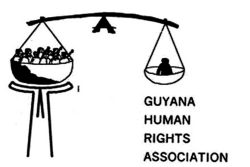Dear Editor,
I write to commend Prof Ganga Ramdas on his articulate, well-written, crisp, clear, concise, eloquent commentary captioned “Dr. Thomas’s ‘average effective tax rate’ is misleading” (SN Jul 25). It is been some years since I last taught taxation in Economics and becoming forgetful on taxation concepts. His commentary alighted my brain as it would so many others who studied and or taught economics and would have become forgetful. Dr. Ramdas’s article, written in straight forward, simple tone, offers clarification for ‘average’ readers on taxes of Exxon Guyana. It is most welcome. Ramdas’s letter has great relevance to the ongoing debate on contracts with oil explorers and production sharing agreements. It provides very valuable information on taxes, reminding readers that Exxon is not paying taxes. He debunks Dr. Thomas’s claims of the average 50% to 60% rate. He asks, is Exxon paying that amount of taxes? He explains that Guyana is receiving revenues from Exxon from two sources: royalty (2%) and profit revenue sharing (12.5%), making short shrift of Prof. Clive Thomas’s comment on “average effective rates” being paid by Exxon.
I recall another excellent article of his a couple months ago on Exxon not paying taxes on revenues earned (that 12.5%) or profits. He did not make a very strong, convincing argument on why Exxon should pay taxes; all corporate business pay taxes on profits as well as paid fees on use of public facilities. But he did make the case that had Exxon paid taxes, money would have been available for so many services in Guyana including doubling pensions. The government signed a very bad agreement (paying Exxon’s taxes) that in effect exempts Exxon from taxes. The government agreed to pay the investors’ taxes. The APNU led government gave away the entire store, saddling the PPP administration with this burden. It is not good investment policy to break agreements even if one gives away a store. But perhaps a way can be found to collect more revenues from licensing, etc., and even from taxes. Guyana’s law on taxes essentially says a company or person pays taxes on income earned. None of the country’s laws says that the government can pay the taxes of an entity. It is not clear if a contract overrides the law; constitutional lawyers have to give clarification. When I taught economics years ago, I pointed out some creative ways how giant companies can be taxed. Companies can pay more taxes but it is up to parliament to make such laws.
Just for clarification, royalties is not really taxes although some economists describe it as a tax. Royalties is income or a fee from use of property; Guyana’s oil and gas are national public properties, the use of which investors pay a fee. And revenues collected from royalties as well as profit sharing are not taxes. Taxes are fees levied on income. Exxon is not paying taxes. It is also not clear if it is paying fees on use of public facilities like roads and bridges as all others pay.
Sincerely,
Dr. Vishnu Bisram









